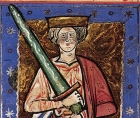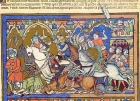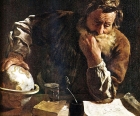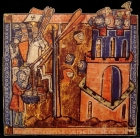Supporting professional learning
History specific CPD is very important if individual teachers and departments are to thrive. The best history departments have a culture of always learning together. They are constantly discussing how children learn in history and they are always updating their subject knowledge. It can be a lot of fun to learn together and to take advantage of opportunities to ‘do history’ as a team. Despite the admin pressures that beset all schools, it is vital that most departmental meeting time is given over to subject specific CPD. In this section you will find helpful articles, guides, resources, and information about opportunities, to enable your department to undertake effective CPD.
Sort by:
Date (Newest first) | Title A-Z
Show:
All |
Articles |
Podcasts |
Multipage Articles
-

Adventures in assessment
ArticleClick to view -

Assessment after levels
ArticleClick to view -

Cunning Plan 163.2: Developing an A-level course in medieval history
ArticleClick to view -

Dialogue, engagement and generative interaction in the history classroom
ArticleClick to view -

Engaging with each other: how interactions between teachers inform professional practice
ArticleClick to view -

From the history of maths to the history of greatness
ArticleClick to view -

Guidance Pack: Building a Local Teacher Network
InformationClick to view -

Literacy and Oracy in History
Multipage ArticleClick to view -

Making rigour a departmental reality
ArticleClick to view -

Move Me On 157: Getting knowledge across
ArticleClick to view -

Move Me On 159: Writing Frames
ArticleClick to view -

Move Me On 162: Reading
ArticleClick to view -

New, Novice or Nervous? 159: Writing history essays
ArticleClick to view -

New, Novice or Nervous? 163: Historical significance
ArticleClick to view -

Passive receivers or constructive readers?
ArticleClick to view -

Promoting rigorous historical scholarship
ArticleClick to view -

So, what exactly does an AST do?
ArticleClick to view -

The importance of subject specific training
ArticleClick to view -

Thinking makes it so: cognitive psychology and history teaching
ArticleClick to view -

Using causation diagrams to help sixth-formers think about cause and effect
ArticleClick to view

